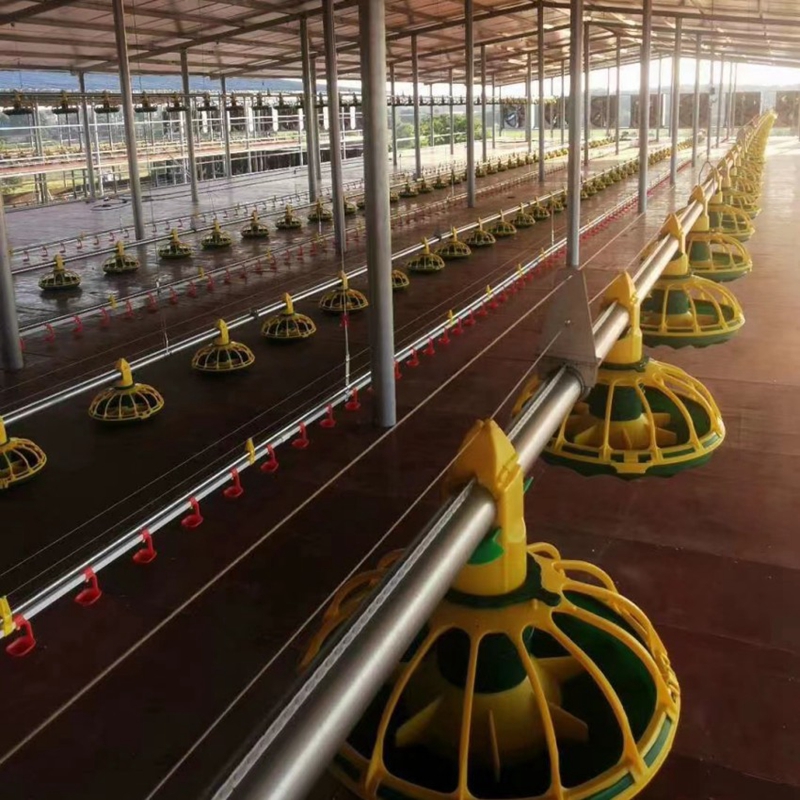Innovative Mobile Poultry Housing Solutions for Sustainable and Free-Range Farming Practices
Aug . 09, 2024 02:25 Back to list
Innovative Mobile Poultry Housing Solutions for Sustainable and Free-Range Farming Practices
Mobile Free Range Poultry Housing A Sustainable Approach to Poultry Farming
In recent years, the demand for sustainably sourced, ethical food products has gained substantial traction among consumers. As a result, traditional poultry farming methods are increasingly being scrutinized for their impact on animal welfare and the environment. One innovative solution that has emerged in response to these concerns is mobile free range poultry housing. This approach not only enhances the welfare of the birds but also promotes sustainable farming practices.
Mobile free range poultry housing is designed to provide chickens with access to outdoor environments while ensuring that they are housed in a controlled and safe manner. Unlike conventional fixed poultry housing, mobile units can be moved regularly, allowing birds to forage on fresh pastures. This system not only mimics the natural behaviors of chickens, such as scratching, pecking, and foraging, but also contributes to better soil health and reduces the need for chemical fertilizers.
One of the key benefits of mobile poultry housing is improved animal welfare. Chickens are social creatures that thrive when given space to move and explore. The ability to roam freely outdoors contributes to their overall health and happiness, which, in turn, leads to higher quality eggs and meat. Studies have shown that free-range chickens tend to exhibit fewer stress-related behaviors compared to their cooped counterparts. Furthermore, the mobile design allows farmers to protect their flocks from predators by relocating the housing as needed.
mobile free range poultry housing

From an environmental perspective, mobile free range poultry housing can significantly reduce the ecological footprint of poultry farming. Traditional systems often lead to overgrazed pastures and a buildup of waste in one area, which can lead to soil degradation and water pollution. By moving the mobile housing regularly, farmers can distribute manure more evenly across the land, enriching the soil rather than damaging it. This practice not only promotes healthier pastures but also supports biodiversity by allowing various plant species to flourish.
Additionally, the use of mobile housing can lead to economic benefits for farmers. The initial investment in mobile units may be higher than traditional coops, but the long-term savings from reduced feed costs and healthier flocks can be substantial. The foraging behavior of chickens enables them to supplement their diet with natural food sources, thus decreasing reliance on commercial feed. Furthermore, by producing free-range eggs and meat, farmers can tap into the growing market of conscious consumers willing to pay a premium for ethically raised poultry products.
Investing in mobile free range poultry housing is also an effective way to engage with local communities and educate the public about sustainable farming practices. Farms that implement this approach can serve as examples of how to balance agricultural productivity with environmental stewardship. By opening their doors to visitors, farmers can share their practices, promote local food systems, and inspire others to consider the benefits of conscious consumerism.
In conclusion, mobile free range poultry housing presents a holistic approach to poultry farming that addresses both animal welfare and environmental sustainability. By providing chickens with access to pasture, promoting natural behaviors, and minimizing the ecological impact of farming, this innovative method aligns with the growing consumer demand for humane and sustainable food sources. As more farmers adopt these practices, the poultry industry may very well transform into a more ethical and environmentally responsible sector. For those seeking to make a positive impact through their food choices, supporting mobile free range poultry farms is a step in the right direction.
-
Hot Sale 24 & 18 Door Rabbit Cages - Premium Breeding Solutions
NewsJul.25,2025
-
Automatic Feeding Line System Pan Feeder Nipple Drinker - Anping County Yize Metal Products Co., Ltd.
NewsJul.21,2025
-
Automatic Feeding Line System Pan Feeder Nipple Drinker - Anping County Yize Metal Products Co., Ltd.
NewsJul.21,2025
-
Automatic Feeding Line System - Anping Yize | Precision & Nipple
NewsJul.21,2025
-
Automatic Feeding Line System - Anping Yize | Precision & Nipple
NewsJul.21,2025
-
Automatic Feeding Line System-Anping County Yize Metal Products Co., Ltd.|Efficient Feed Distribution&Customized Animal Farming Solutions
NewsJul.21,2025






